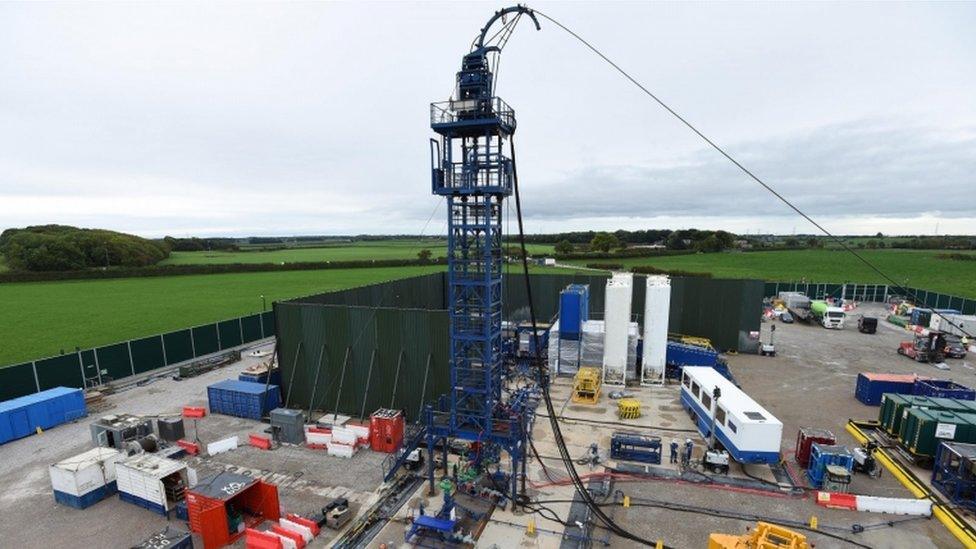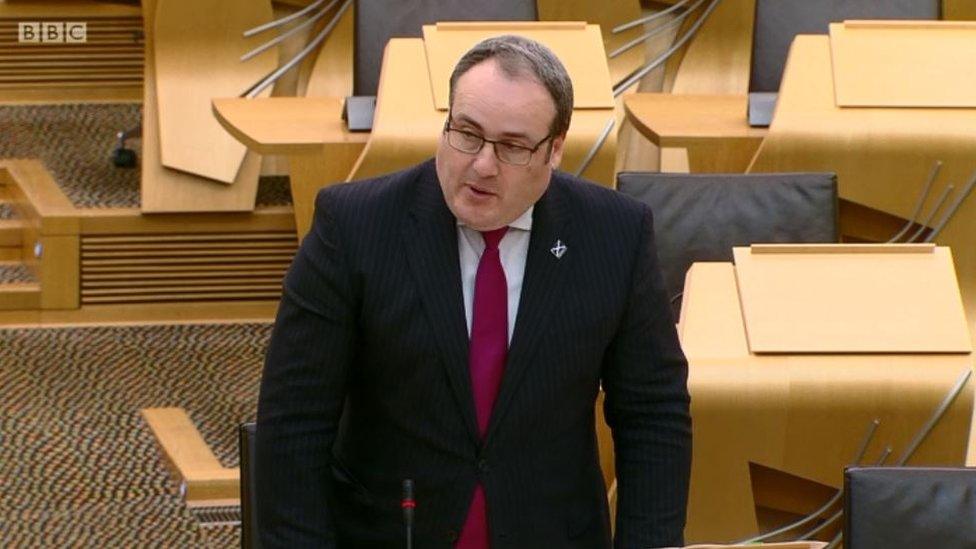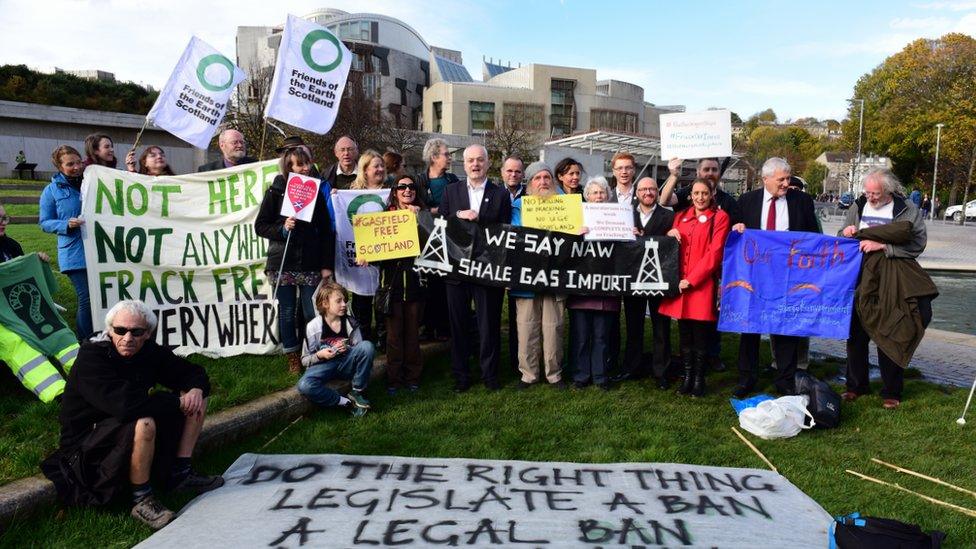Scottish government confirms 'no fracking' policy
- Published

Fracking is permitted in England, such as at this site in Lancashire
The Scottish government has confirmed its policy of not allowing fracking.
Energy Minister Paul Wheelhouse told MSPs that the existing block on unconventional oil and gas development would continue indefinitely.
He said the controversial extraction technique was "incompatible" with the government's policies to tackle climate change.
Opposition parties said the move fell short of a full legal ban, but Mr Wheelhouse insisted it was "robust".
The prohibition will be enforced via planning powers, with no licences for fracking being issued to companies.
The government first announced a moratorium on fracking in 2015, beginning a lengthy period of consultations and environmental and economic studies.
In 2017, Mr Wheelhouse announced a "preferred position" of not supporting fracking, which he termed as an "effective ban".
However after a legal challenge from petrochemical firm Ineos the following year, the government's lawyers successfully argued that talk of a "ban" was a "PR gloss" and that there was in fact "no prohibition against fracking in force".
The government has now set out that its "final policy position" is that it "does not support the development of unconventional oil and gas in Scotland".

Paul Wheelhouse told MSPs that the government's position was "robust"
News of the finalised policy position leaked a day early after it was accidentally published on a government website.
Mr Wheelhouse told MSPs: "That decision followed consideration of many factors including the significant negative effects that UOG development could have on our natural environment and the health and wellbeing of communities, while bearing in mind the overwhelming feedback from the public that this should not be permitted in Scotland.
"After a comprehensive evidence-gathering exercise, we have concluded that the development of onshore unconventional oil and gas is incompatible with our policies on climate change, energy transition and the decarbonisation of our economy.
"Fracking can only happen if licences are issued and we do not intend to issue any licences which would permit that."
'Full legal ban'
Environmental groups and some opposition parties have argued that a block enforced via planning powers could be reversed easily by a future government.
Mary Church from Friends of the Earth Scotland said it was "very welcome" that fracking would not be allowed, but said it was "frustrating that today's decision falls short of the full legal ban that would put the issue to bed once and for all."
However Mr Wheelhouse insisted that a "strong policy position" enforced via orders to councils was "robust, evidence-led and sufficient".
He said legislation could potentially be introduced in future in light of new evidence, but stressed that "since the moratorium, no unconventional oil and gas extraction has taken place in Scotland".
- Published2 October 2019
